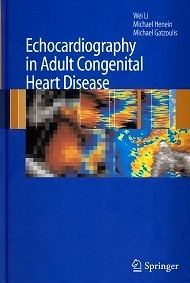Reseña o resumen
Examines the complex interactions associated with clinical toxicological events as a result of therapeutic drug administration or chemical exposure. Special emphasis is placed on signs and symptoms of diseases and pathology caused by toxins and clinical drugs. Includes the source, pharmacological and toxicological mechanism of action, detection and identification in body fluids, and treatment of exposure. An overview of protocols for managing various toxic ingestions, and the antidotes and treatments associated with their pathology, are discussed. In addition, effect of toxins on a limited number of body systems and drug-induced adverse drug reactions are also covered.
Key Features
Examines the complex interactions associated with clinical toxicological events
Emphasis is placed on signs and symptoms of diseases and pathology caused by toxins and clinical drugs
Discusses source of the drug or chemical, pharmacological and toxicological mechanisms of action, detection,
identification, and treatment
Covers effect of toxins on body systems and drug-induced adverse reactions
Frank A. Barile, Ph.D., is Professor of Applied and Clinical Toxicology in the Department of Pharmaceutical Sciences, St. John's University College of Pharmacy and Health Sciences, New York. He received his Ph.D. in Toxicology (1982) at St. John's University. He completed post-doctoral fellowships at the Albert Einstein College of Medicine, Bronx, NY, and Columbia University, NY. In 1984, he was appointed Assistant Professor in the Department of Health Sciences at City University of NY. Sixteen years later he rejoined St. John's University in the Department of Pharmaceutical Sciences.
Dr. Barile holds memberships in the U.S. Society of Toxicology, the American Association for the Advancement of Science, and the New York Academy of Sciences. He was elected President of the In Vitro & Alternative Methods Specialty Section of the U.S. Society of Toxicology (2005-2008) and was recently elected VP-elect for the Dermal Toxicology Specialty Section (2013-2014). He is the recipient of the U.S. Public Health Service Medallion from the Director of the NIEHS, Dr. Linda Birnbaum (June, 2009).
Dr. Barile is the recipient of PHS research grants from the National Institutes of Health, National Institute of General Medical Sciences (NIH, NIGMS) for the last 20 years, as well as from the Alternative Research & Development Foundation (Jenkinton, PA) and the International Foundation for Ethical Research (Chicago, IL).
Dr. Barile has authored approximately 75 papers and abstracts in peer-reviewed biomedical and toxicology journals, as well as five books and three chapters, including Clinical Toxicology: Principles and Mechanisms, 2nd edition, 2010 (Informa HealthCare, London, UK) and Principles of Toxicology Testing, 2nd edition, 2013 (CRC Press, FL, USA). Recently published articles describe the development of in vitro ocular toxicity testing methods for detecting irritant and corrosive properties of chemicals (J. Pharmacological Toxicological Methods, 2010), highlighting epigenetic mechanisms using trace metals in embryonic stem cells (Toxicology Letters, 2012), and regulatory issues concerning endocrine disruptors (Autrup et al., Toxicol. Sciences, 2015).
Dr. Barile is the Chairman of the Department of Pharmaceutical Sciences (serving 36 faculty) and also serves on the editorial boards of Toxicology In Vitro (2007-present) and J. Pharmacological & Toxicological Methods (2008-present). He is currently Editor-in-Chief of Toxicology In Vitro (2012-present). He continues fundamental research on the cytotoxic effects of environmental chemicals on cultured human and mammalian embryonic stem cells

